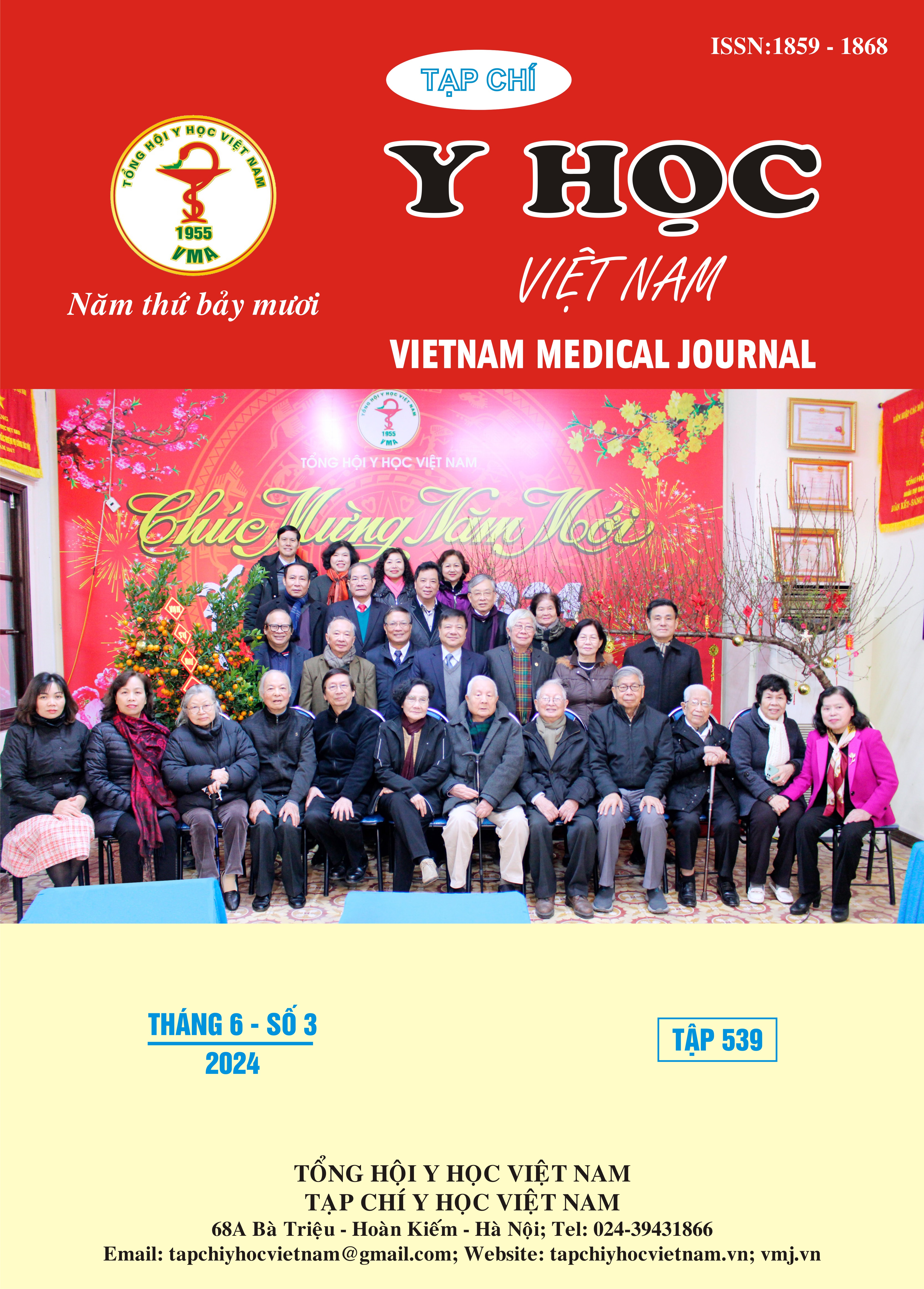CORRELATION BETWEEN THE INFANTS' DERMATITIS QUALITY OF LIFE INDEX (IDQOL) FOR CHILDREN AGED 0-4 YEARS AND THE SEVERITY OF THE DISEASE ASSESSED ACCORDING TO THE SCORING ATOPIC DERMATITIS SCALE (SCORAD) IN CHILDREN WITH ATOPIC DERMATITIS
Main Article Content
Abstract
Objectives: Determine the correlation between the Infants' Dermatitis Quality of Life Index (IDQOL) for children aged 0-4 years and the severity of the disease assessed according to the Scoring Atopic Dermatitis scale (SCORAD) in children with atopic dermatitis. Methods: Cross-sectional study on 284 children aged 0-4 years with atopic dermatitis at Children's Hospital 1, Children's Hospital 2 and City Children's Hospital. Results: Median IDQOL score was 7 (interquartile range 5-9), 59,9% of children aged 0-4 years old had their quality of life affected, of which 10.9% of children had their quality of life seriously affected. Median SCORAD score was 35 (interquartile range 27.5-42). SCORAD score was in posive correlation (r=0,6033), moderate level and statistically significant (p<0,001) with the IDQOL score. Conclusion: There is a correlation between the severity of the disease and the quality of life of children with atopic dermatitis aged 0-4 years. IDQOL index and severity classification according to SCORAD are useful tools to contribute a comprehensive assessment of children aged 0-4 years with atopic dermatitis.
Article Details
Keywords
IDQOL, SCORAD, atopic dermatitis
References
2. Lewis-Jones MS, Finlay AY, Dykes PJ. The Infants' Dermatitis Quality of Life Index. The British journal of dermatology. Jan 2001; 144(1): 104-10. doi:10.1046/j.1365-2133.2001. 03960.x.
3. Chinn DJ, Poyner T, Sibley G. Randomized controlled trial of a single dermatology nurse consultation in primary care on the quality of life of children with atopic eczema. The British journal of dermatology. Mar 2002;146(3):432-9. doi:10.1046/j.1365-2133.2002.04603.x.
4. Beattie PE, Lewis-Jones MS. An audit of the impact of a consultation with a paediatric dermatology team on quality of life in infants with atopic eczema and their families: further validation of the Infants' Dermatitis Quality of Life Index and Dermatitis Family Impact score. The British journal of dermatology. Dec 2006;155(6): 1249-55. doi:10.1111/j.1365-2133.2006.07525.x.
5. Gånemo A, Svensson A, Lindberg M, Wahlgren CF. Quality of life in Swedish children with eczema. Acta dermato-venereologica. 2007;87(4):345-9. doi:10.2340/00015555-0245.
6. Kim DH, Li K, Seo SJ, et al. Quality of life and disease severity are correlated in patients with atopic dermatitis. Journal of Korean medical science. Nov 2012;27(11):1327-32. doi:10.3346/ jkms.2012.27.11.1327
7. Maksimovic N, Zaric M, Reljic V, Nikolic M, Gazibara T. Factors associated with improvement of quality of life among parents of children with atopic dermatitis: 1-year prospective cohort study. Journal of the European Academy of Dermatology and Venereology: JEADV. Feb 2020; 34(2):325-332. doi:10.1111/jdv.15939.
8. Hanifin JM RG. Diagnostic features of atopic dermatitis. Acta Derm Venereol (Suppl). 1980;92:44-47.
9. Severity scoring of atopic dermatitis: the SCORAD index. Consensus Report of the European Task Force on Atopic Dermatitis. Dermatology (Basel, Switzerland). 1993;186(1): 23-31. doi:10.1159/000247298.
10. Krejci-Manwaring J, McCarty MA, Camacho F, et al. Adherence with topical treatment is poor compared with adherence with oral agents: implications for effective clinical use of topical agents. Journal of the American Academy of Dermatology. May 2006;54(5 Suppl):S235-6. doi:10.1016/j.jaad.2005.10.060.


